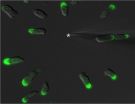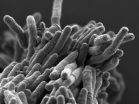(Press-News.org) ARLINGTON HEIGHTS, Ill. (July 7, 2015) - Parents of kids with severe allergies know how scary a severe allergic reaction (anaphylaxis) is. New research offers clues as to why some kids can have a second, related reaction hours later - and what to do about it.
A study in the Annals of Allergy, Asthma and Immunology, the scientific publication of the American College of Allergy, Asthma and Immunology (ACAAI), examined records of 484 children seen in an emergency department (ED) for anaphylaxis. The researchers tracked whether there was a second, follow-up reaction. Delayed reactions occur when the initial symptoms of an allergic reaction go away but then return hours later without exposure to the substance that caused the reaction.
"We found that 75 percent of the secondary reactions occurred within six hours of the first," said Waleed Alqurashi, MD, lead author of the study. "A more severe first reaction was associated with a stronger possibility of a second reaction. Children aged six to nine, children who needed more than one dose of epinephrine and children who do not get immediate epinephrine treatment were among the most likely to develop secondary reactions."
Children who developed a second reaction had evidence of anaphylactic shock in the ED, required multiple doses of epinephrine and required multiple other therapies to treat the first reaction. At least half of the second reactions were considered serious, and also required treatment with epinephrine.
"The key message here for parents, caregivers and first-responders is to administer epinephrine at the first sign of a severe allergic reaction to prevent anaphylaxis from worsening," said allergist James Sublett, MD, ACAAI president. "Anaphylaxis symptoms occur suddenly and can progress quickly. Always have a second dose with you and, when in doubt, administer it too. Anaphylaxis can be fatal if left untreated."
The early symptoms may be mild, such as a runny nose, a skin rash or a "strange feeling," but these symptoms can quickly lead to more serious problems, including trouble breathing, hives or swelling, tightness of the throat, nausea, abdominal pain or even cardiac arrest.
An emergency room visit for anaphylaxis should be followed up with a visit to an allergist, as allergists provide the most comprehensive follow-up care and guidance.
INFORMATION:
For more information about treatment of anaphylaxis and to locate an allergist in your area, visit AllergyAndAsthmaRelief.org.
About ACAAI
The ACAAI is a professional medical organization of more than 6,000 allergists-immunologists and allied health professionals, headquartered in Arlington Heights, Ill. The College fosters a culture of collaboration and congeniality in which its members work together and with others toward the common goals of patient care, education, advocacy and research. ACAAI allergists are board-certified physicians trained to diagnose allergies and asthma, administer immunotherapy, and provide patients with the best treatment outcomes. For more information and to find relief, visit AllergyandAsthmaRelief.org. Join us on Facebook, Pinterest and Twitter.
When Greek mythology and cell biology meet, you get the protein Callipygian, recently discovered and named by researchers at The Johns Hopkins University for its role in determining which area of a cell becomes the back as it begins to move.
The findings, made in the amoeba Dictyostelium discoideum, shed light on how symmetrical, round cells become "polarized," or asymmetrical and directional. A summary of the findings was published online June 30 in the Proceedings of the National Academy of Sciences.
"Cells have to have a front and a back to migrate," says Peter ...
Scientists have discovered new ways in which the malaria parasite survives in the blood stream of its victims, a discovery that could pave the way to new treatments for the disease.
The researchers at the Medical Research Council's (MRC) Toxicology Unit based at the University of Leicester and the London School of Hygiene & Tropical Medicine identified a key protein, called a protein kinase, that if targeted stops the disease. The study is published today (Tuesday) in Nature Communications.
Malaria is caused by a parasite that lives inside an infected mosquito and ...
Testing thousands of approved drugs, EPFL scientists have identified an unlikely anti-tuberculosis drug: the over-the-counter antacid lansoprazole (Prevacid®).
Tuberculosis continues to be a global pandemic, second only to AIDS as the greatest single-agent killer in the world. In 2013 alone, the TB bug Mycobacterium tuberculosis caused 1.5 million deaths and almost nine million new infections. Resistance to TB drugs is widespread, creating an urgent need for new medicines. EPFL scientists have now identified lansoprazole, a widely used, over-the-counter antacid, as ...
New research from the University of Copenhagen and Herlev and Gentofte Hospital shows that high vitamin C concentrations in the blood from the intake of fruit and vegetables are associated with a reduced risk of cardiovascular disease and early death.
Fruit and vegetables are healthy. We all know that. And now there is yet another good reason for eating lots of it. New research from the University of Copenhagen shows that the risk of cardiovascular disease and early death falls with a high intake of fruit and vegetables, and that this may be dued to vitamin C.
The ...
CHARLOTTESVILLE, VA (JULY 7, 2015). Researchers at Brown University examined three magnetically programmable shunt valves to see if the magnetic field emissions of headphones can cause unintentional changes in shunt valve settings. Based on their findings, the researchers state that it is highly unlikely that commercially available headphones will interfere with programmable shunt valve settings. Full details of this study can be found in "Programmable shunts and headphones: Are they safe together?" by Heather S. Spader, MD, and colleagues, published today online, ahead ...
CHARLOTTESVILLE, VA (JULY 7, 2015). Researchers conducted a prospective observational study in elderly patients and adult patients receiving antiplatelet therapy who presented with mild head injury at two trauma hospitals in Vienna: the Trauma Hospital Meidling and the Donauspital. The focus of the study was to see if blood serum levels of S100B protein in these patients could help identify whether their injuries included intracranial bleeding. If there was no indication of intracranial hemorrhage, these patients would not need additional testing or hospitalization. The ...
Policymakers and developers planning high-density housing near public transit with the goal of reducing automobile use and greenhouse gas emissions that contribute to global warming need a clearer understanding of the health risks from air pollution that may be created if that housing is also built near busy roads and freeways, according to new research by Keck School of Medicine of the University of Southern California (USC) scientists.
The study is one of the first to focus on the burden of heart disease that can result from residential exposures near major roadways ...
Weather is frequently portrayed in popular music, with a new scientific study finding over 750 popular music songs referring to weather, the most common being sun and rain, and blizzards being the least common. The study also found many song writers were inspired by weather events.
The study, led by the University of Southampton, together with the Universities of Oxford, Manchester, Newcastle (all part of the Tyndall Centre for Climate Change Research) and the University of Reading analysed the weather through lyrics, musical genre, keys and links to specific weather ...
Faith-based organisations [1] are crucial in achieving the promise of universal health coverage--an adequate standard of health care for all people--especially for poor and marginalised groups, according to a new three-part Series on faith-based health care, published in The Lancet. The Series argues that building on the extensive experience, strengths, and capacities of faith-based organisations (eg, geographical coverage, influence, and infrastructure) offers a unique opportunity to improve health outcomes.
Because of their broad reach and influence, faith-based groups ...
Drinking alcohol while pregnant is common, ranging from 20% to 80% among those questioned in the UK, Ireland, Australia and New Zealand, reveals a study of almost 18,000 women published in the online journal BMJ Open.
Women across all social strata drank during pregnancy, the findings showed. But expectant mums were significantly more likely to be drinkers if they were also smokers.
The researchers base their findings on an analysis of data from three studies: The Growing up in Ireland (GUI) study; the Screening for Pregnancy Endpoints (SCOPE) study; and the Pregnancy ...

